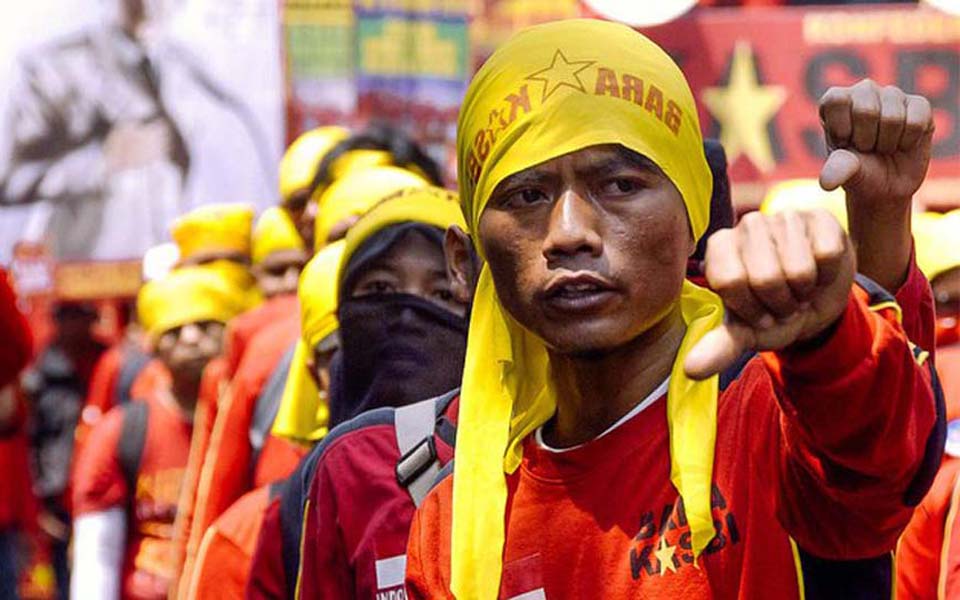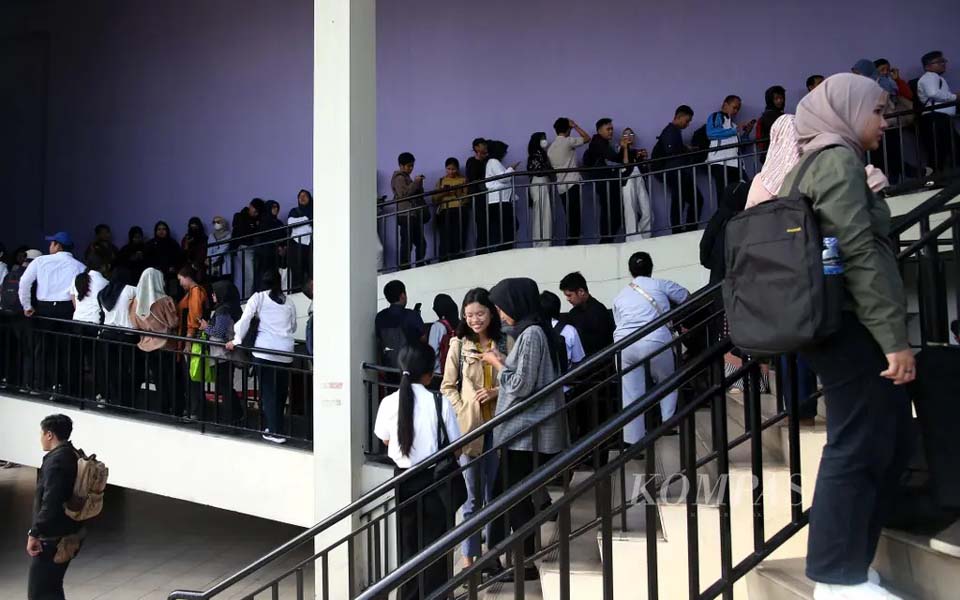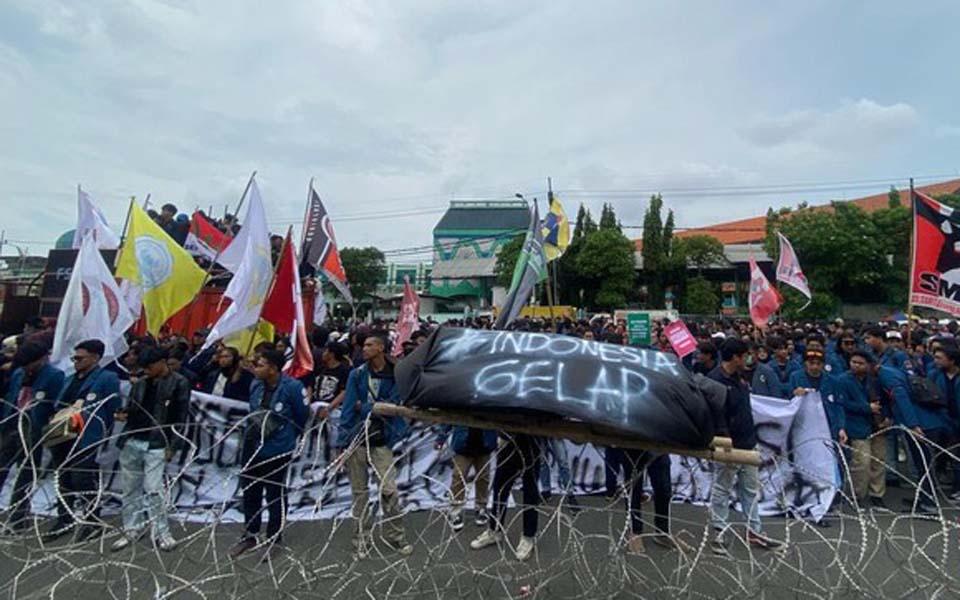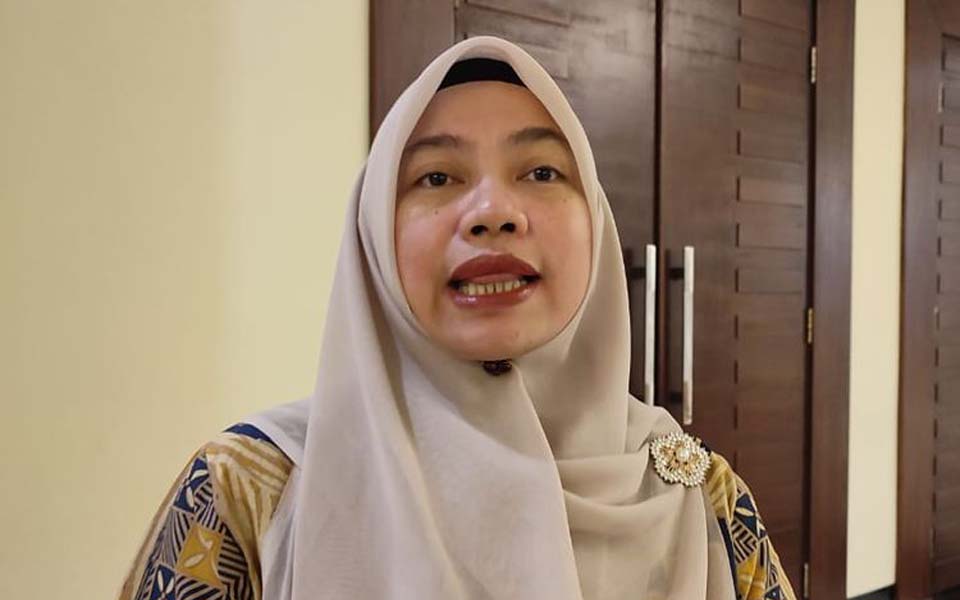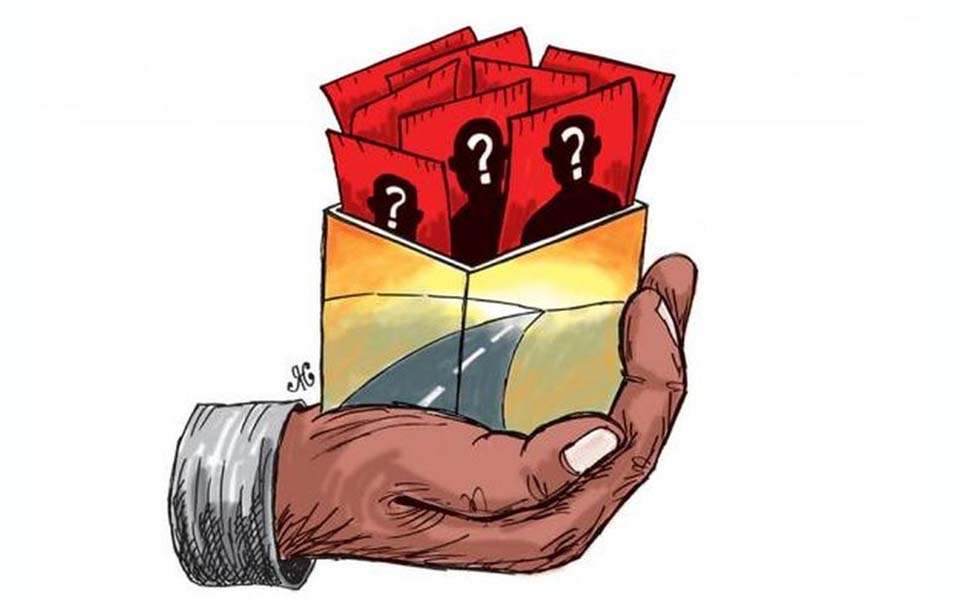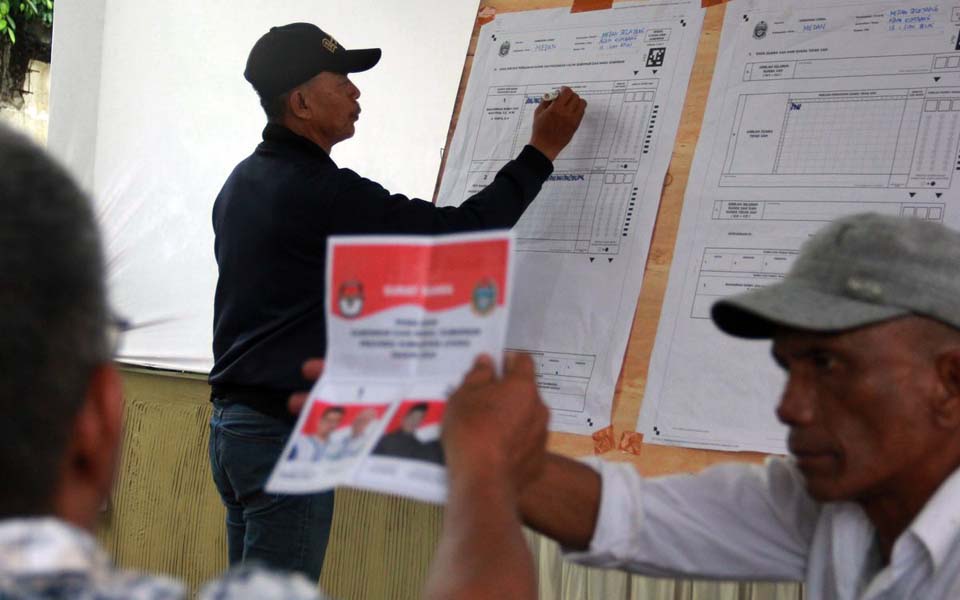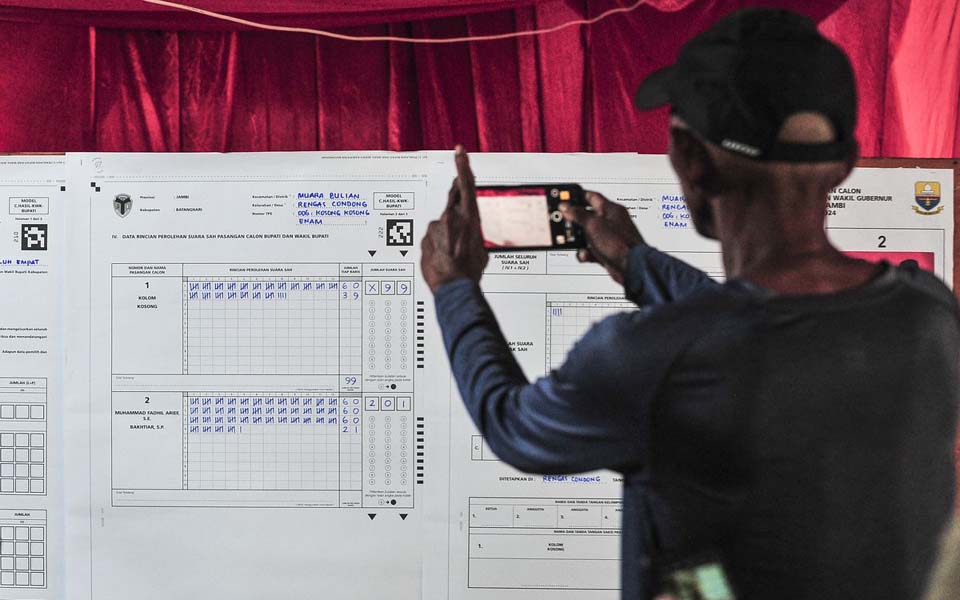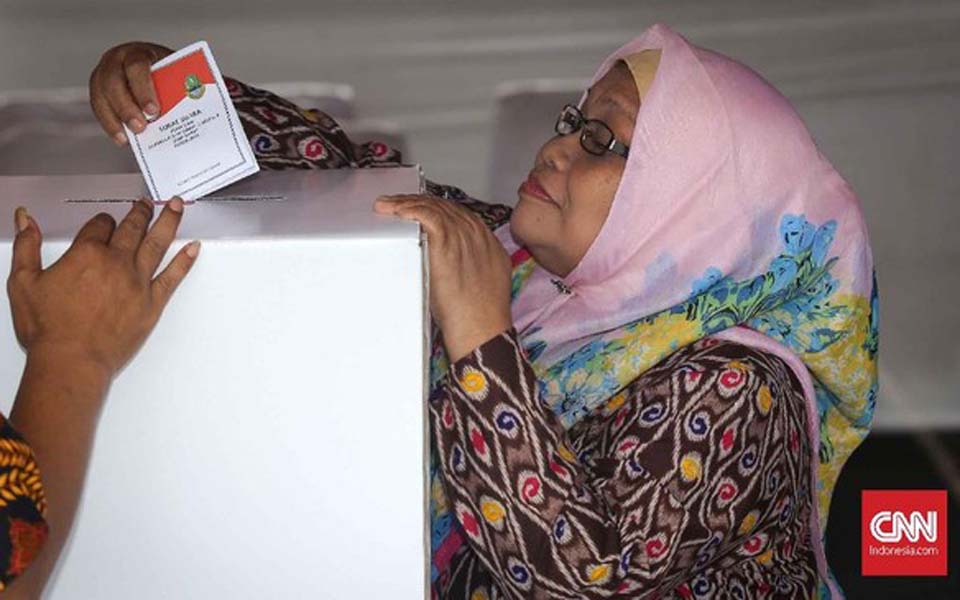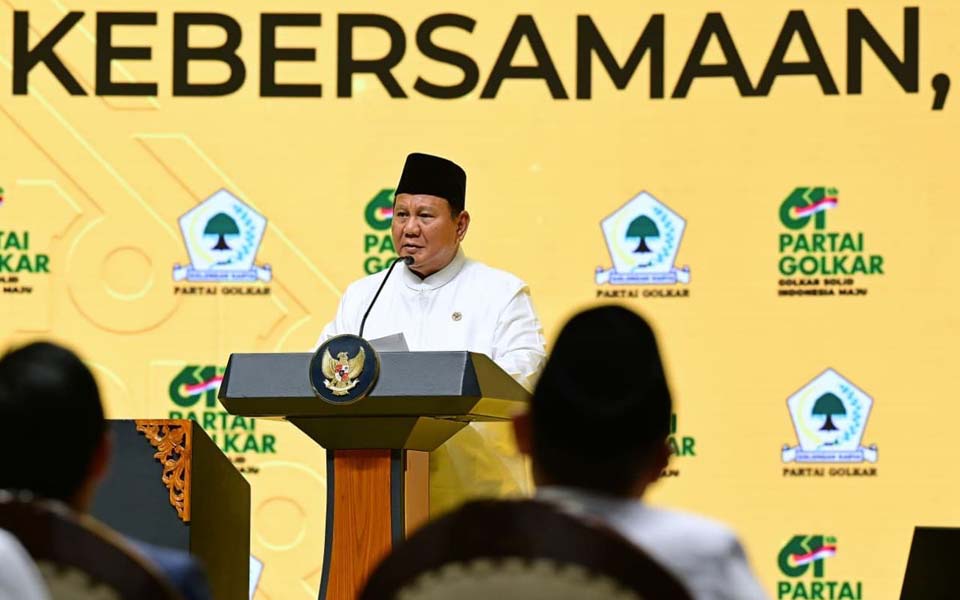Lalu Rahadian – Only days are left before simultaneous regional elections begin. The candidates taking part in the competition are using a variety of means to attract public attention in the hope of being chosen at the ballot box.
For trade unions, the 2018 election of regional heads (Pilkada) as well as the 2019 legislative (Pemilu) and presidential (Pilpres) elections are an arena to demonstrate their political stance.
But each trade union has a different position. The two largest trade unions in Indonesia: the Indonesian Trade Union Confederation (KSPI) and the Indonesian Trade Union Congress Alliance (KASBI) have quite different positions.
In KSPI’s view it is not enough that the labour struggle be confined to demonstrations and advocacy. So they believe that it is quite natural for trade unions to support particular candidates in elections.
“We’ll decide whether or not to support someone, independently, [we’ll] decide ourselves, it will be initiated in or own meeting room. There won’t be any intimidation”, said KSPI media and public relations division head Kahar S. Cahyono in a discussion under the theme “Chasing the Labour Vote in the Year of Politics”, which was held in Jakarta on Saturday March 31.
In the past, the KSPI has indeed openly supported candidates. In the 2014 presidential elections they supported the Prabowo Subianto-Hatta Rajasa ticket. They also supported the Anies Baswedan-Sandiaga Uno ticket in the 2017 Jakarta gubernatorial election – even though this mandate was later revoked.
During an event organised by the Media and Creative Industries Trade Union for Democracy (Sindikasi), Cahyono said that if there is trade union support it will always be political, meaning that there is already a specific agreement based on a political contract. With that at the very least, a trade union can trust that the candidate they back will make policies that side with them.
“Whether or not there is a political contract, if a leader doesn’t side with workers then yes it’s our obligation is to criticise them”, said Cahyono.
Cahyono’s view is in the same vein as KSPI President Said Iqbal. The University of Indonesia (UI) economics masters program alumni believes that trade unions should not be shy about announcing support for one of the candidates.
Going further than just giving them votes and actively campaigning, Iqbal says that workers also need to nominate representatives as candidates in elections. He believes that having a legislative member from workers’ ranks could facilitate their struggle.
“We are currently envisaging a political party [being established] from an ormas [social or mass organisation] that we formed, called the People’s Home for Indonesia (Rumah Rakyat untuk Indonesia). We’re projecting that it could take part in the 2024 [elections]”, said Iqbal.
In the coming presidential election, the KSPI will again support one of the candidates, which they will declare on May 1, May Day. In relation to a political contract, Iqbal said that they will ask for “ministerial allotment”, without specifying which ministry they want.
“I’m not shy about saying this: we will ask for a ministerial post. We will ask for two or three posts”, he said.
Not a people’s election
The KASBI has a different position and unlike the KSPI will not support any particular candidates. They are taking this position because in their view the elections have nothing to do with the real needs of the people.
What is in fact happening at the moment, said KASBI General Chairperson Nining Elitos, is that workers are limited to being a “vote reserve” which is offered “sweet promises” at every election. “Today’s elections are not owned by the ordinary people”, said Nining.
Nining gives as an example the sweet promises made by politicians to improve workers’ welfare. This was one of the pledges made by President Joko “Jokowi” Widodo in the 2014 presidential election. The pledge was summarised in the slogan “The Decent Three” (Tiga Layak) – “Decent Jobs, Decent Wages and a Decent Life”.
According to Nining, since becoming president Widodo has in fact made things worse for workers by enacting Government Regulation Number 78/2015 on Wages (PP 78/2015).
Under this regulation the formula for calculating annual wage increases is based on the inflation rate an economic growth. The PP 78/2015 disregards the annual reasonable living cost index (KHL) survey which under the 2003 Labour Law was used by workers to demand annual wage rises.
“And then there’s social security [Social Security Management Agency healthcare, BPJS] which [Widodo] said would be free, if the people are late and don’t pay dues for just a month they’re cut off. That’s called insurance, right [not social security]”, said Nining.
The woman born in Bengkulu, South Sumatra, says that KASBI will continue to be critical of any government that comes out of the elections, regardless of who is elected.
She also said that although they are pessimistic that the elections will bring about any change, they will not be issuing any instructions to their members not to cast a vote during the elections, or ato golput (white movement) as it is known.
Nining said that KASBI wants to first focus on building working class consciousness for the next several years after which the organisation will issue a clearer political position.
“We are building working class consciousness so that [workers] don’t just become a vote reserve. In the process of building this, organising, we will determine our position on whether to build our own parpol [political party] or what kind of political position to take”, said Nining.
Becoming legislators
House of Representatives (DPR) Commission IX member Ribka Tjiptaning from the Indonesian Democratic Party of Struggle (PDI-P) faction suggests that workers enter the world of politics so that it is easier for them to fight for their interests and understand how the parliament works.
The branch chairperson of the PDI-P since 1983 said that workers could become legislators by forming their own political party or taking part in the elections through an existing party. “[Although] we’ll see later how the parliament is. Because many former activists who have entered parliament are silent”, she said.
Ribka, who sparked a controversy after writing a book titled, I’m Proud to be a PKI child – referring to the banned Indonesian Communist Party – confirmed that view that the current elections are indeed not a “people’s election”. “Those that become legislators become so not because they’re popular but because they have money”, she said.
Ribka is of the view that the lack of interest on the part of the DPR in fighting for workers rights is because many people’s representatives come from employer groups. They are able to become members of parliament precisely because they have money.
“How can the [DPR] be interested in fighting [for workers] if it its completely filled with employers. So the elections should be contested by workers”, said Ribka.
In addition to this, Ribka said that efforts by legislators to defend workers are often blocked by political party orders. She also revealed that many House members are afraid to speak up or take a firm positions because of the threat of being replaced.
“These day’s people are afraid of PAW [to be recalled]. The political parties are more repressive now, so it makes DPR members who were vocal in the past afraid”, she said.
Notes
KSPI president Said Iqbal, who supported former Special Forces (Kopassus) commander retired General Prabowo Subianto’s failed 2014 presidential bid, also supported the Prabowo backed Anies Baswedan-Sandiaga Uno ticket in the religiously and ethnically divisive Jakarta gubernatorial election in 2017. He later withdrew his support for newly elected Governor Baswedan calling him a “liar” after he failed to honor a political contract pledging not to use the PP 78/2015 to determine the 2018 minimum wage rise.
[Translated by James Balowski. The original title of the article was Suara Serikat Buruh Terpecah Jelang Pemilu 2019.]
Source: https://tirto.id/suara-serikat-buruh-terpecah-jelang-pemilu-2019-cG2q





